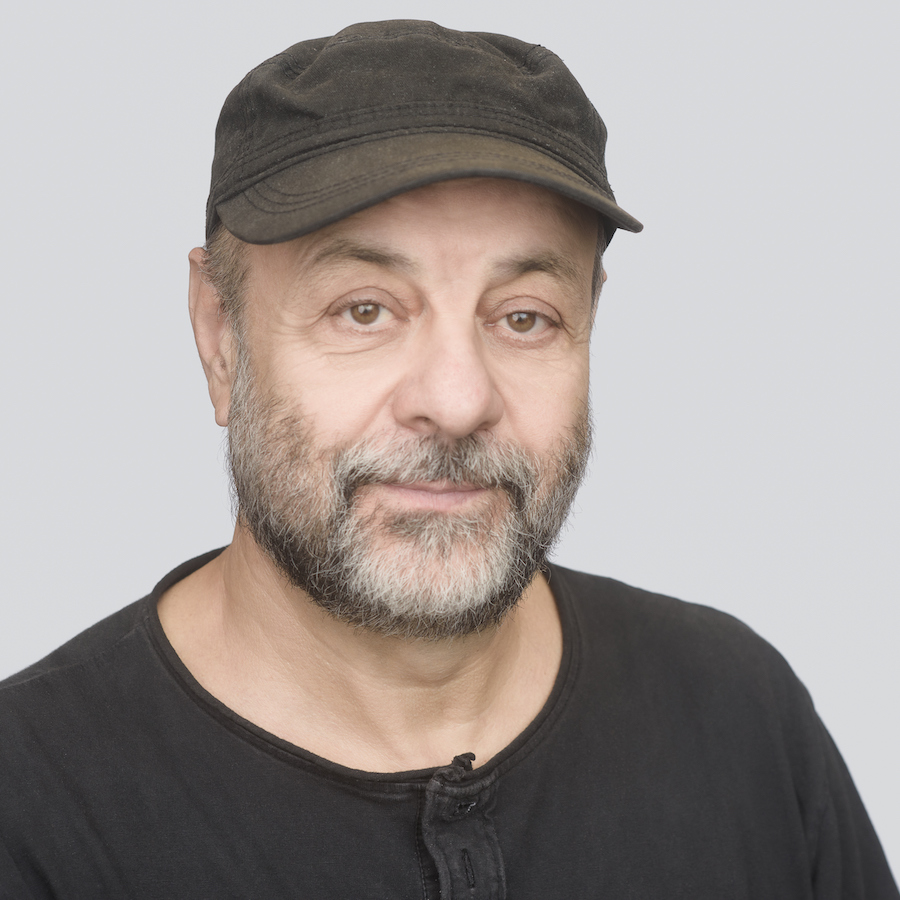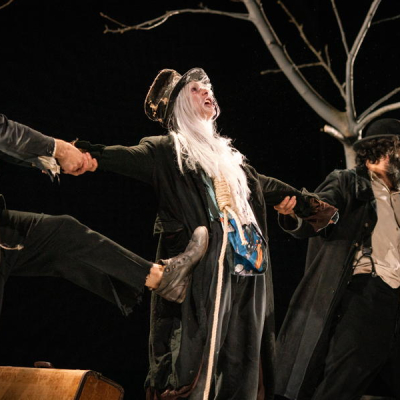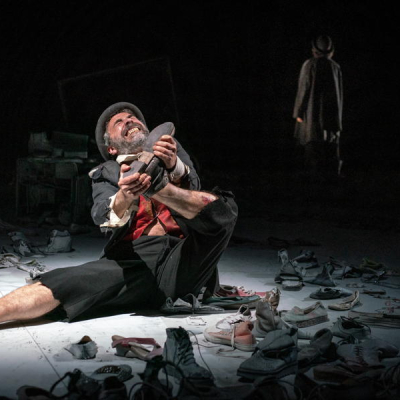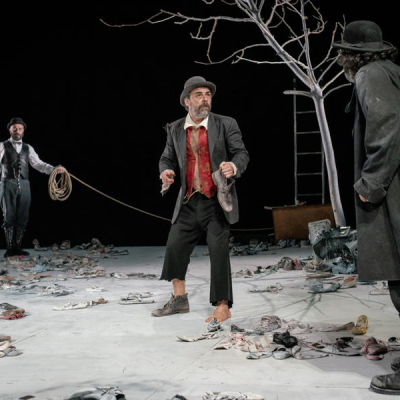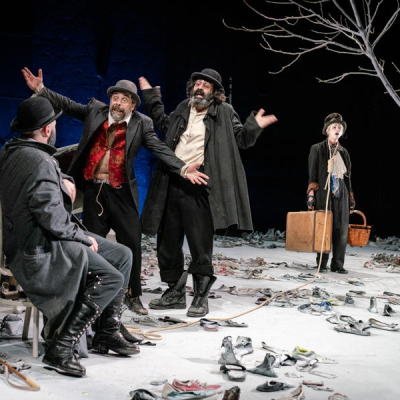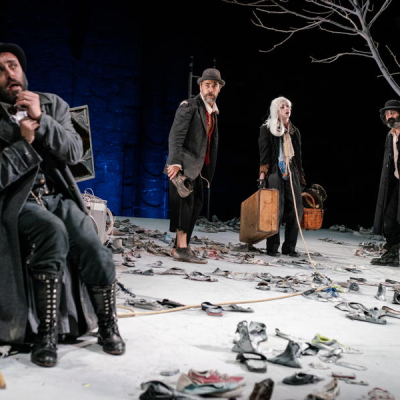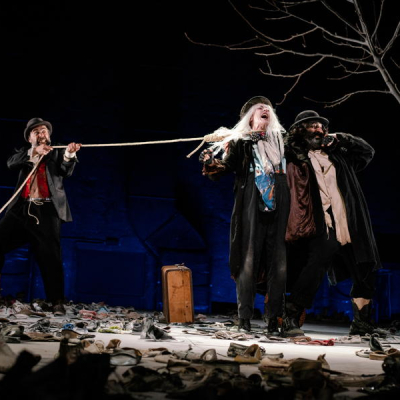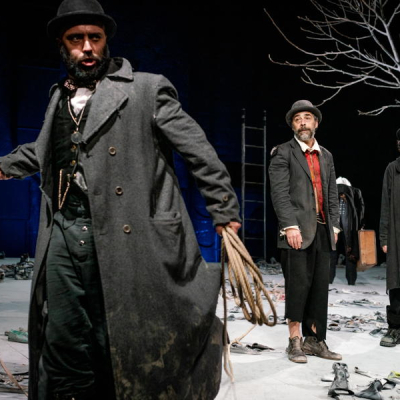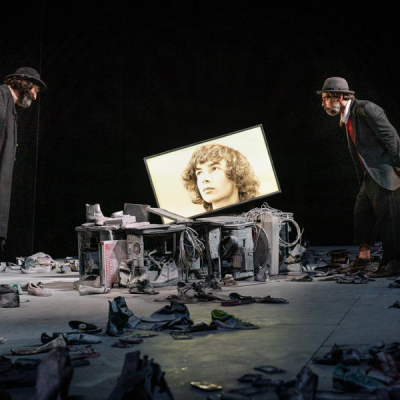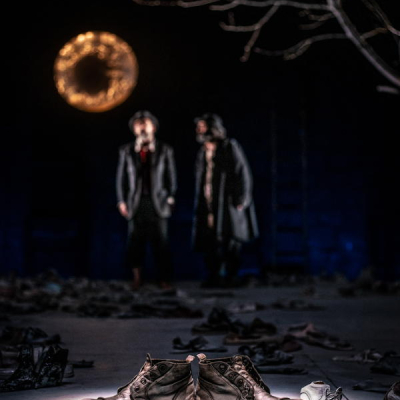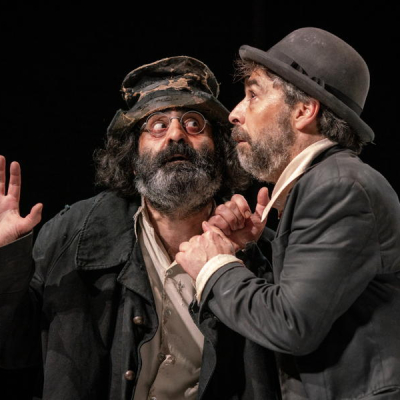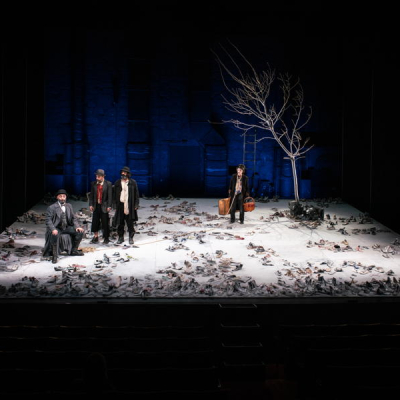Waiting for Godot 14
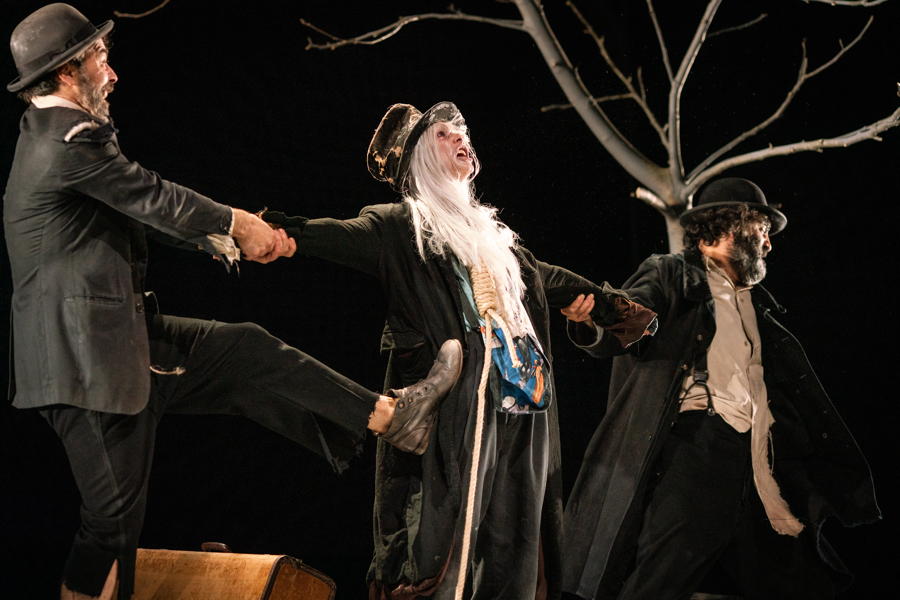
Teatro Nacional São João, Porto, Portugal
Director: Gábor Tompa
Performed in Portuguese with Hungarian and English subtitles
2 hours 20 minutes with 1 breaks.
n Waiting for Godot, a saxophone line, taken on loan from Tom Waits, recurs throughout Samuel Beckett’s play, highlighting its circularity. The sloping stage, “on the verge of the abyss and at the centre of the garbage dump”, is human history in decline. Within the scope of two acts/days, we witness “all the postures of visible humanity, two by two”. Vladimir-Estragon, Pozzo-Lucky and the Boy: two duets and one (false) solo. In the mind of Gábor Tompa, the music contained in this precise score is the music of life as waiting, of the pair’s complementariness, of interdependence with the other, of hope for salvation. “All theatre is waiting”, said Beckett. With the puerile and clown-like games of survival they play to pass the time, Vladimir and Estragon are also literally making time, playing both the Godot-game and the theatre-game. Always together, they show up. “We are not saints, but we have kept our appointment. How many people can boast as much?”
Színészek / Actors
Estragon: João Melo
Lucky: Maria Leite
Vladimir: Mário Santos
Pozzo: Rodrigo Santos
Fiú/Boy: Vicente Melo
Portugál fordítás /Potuguese translation: Francisco Luís Parreira
Díszlet- és jelmeztervező /Set and costume design: Andrei Both
Fénytervező / Lighting design: Filipe Pinheiro
Rendezőasszisztens /Direction assistance: Manuel Tur
A produkció menedzsere/ Production manager: Maria João Teixeira
Gyártásvezető /Executive production: Alexandra Novo, Mónica Rocha
Műszaki vezető /Technical direction: Emanuel Pina
Gábor Tompa


